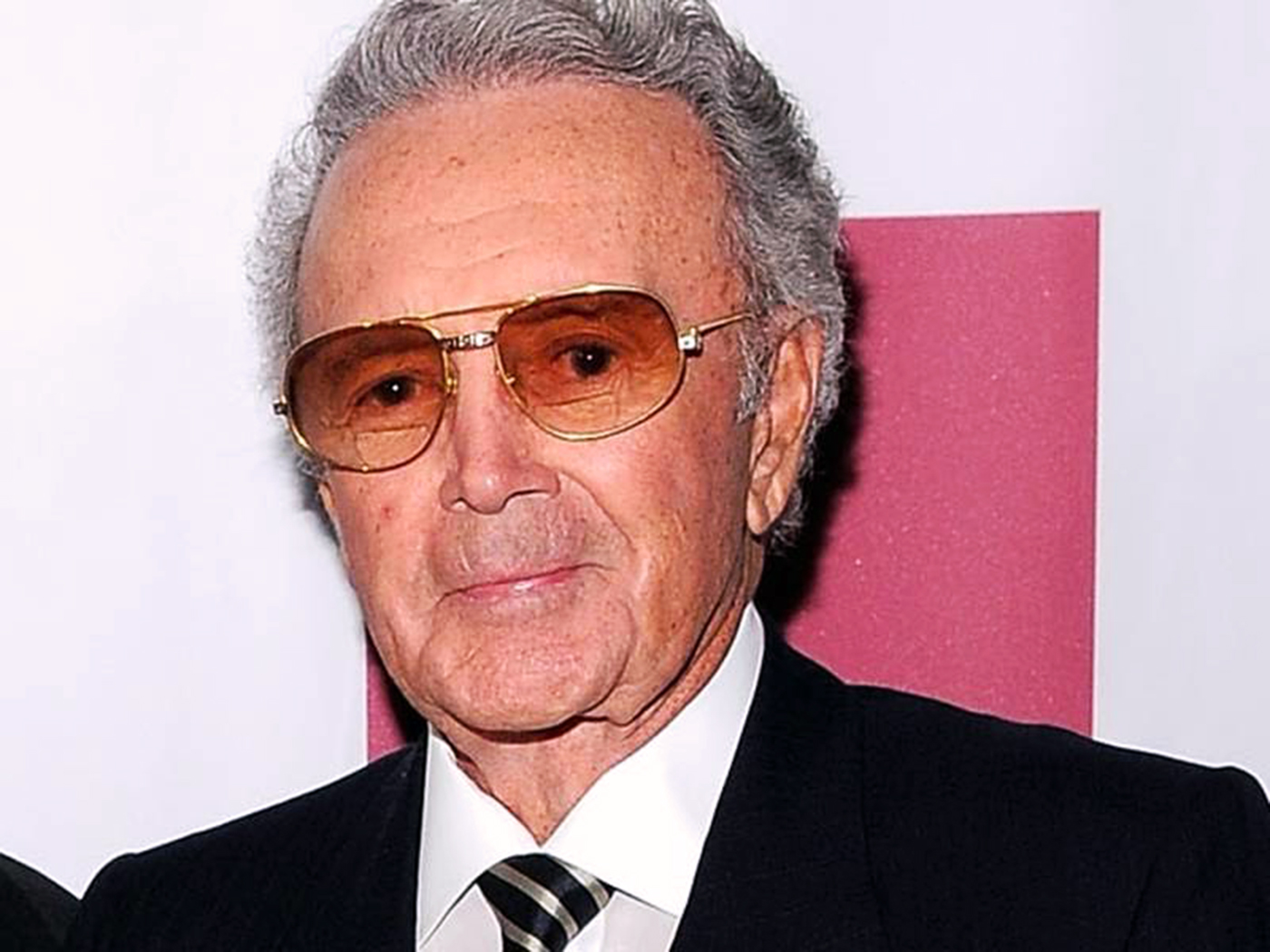For those who grew up in an Italian household, the songs that were played usually included five names. At the top was Sinatra – always Sinatra, then came Perry Como, Dean Martin, Tony Bennett and Vic Damone. Vic passed away last week of respiratory failure in Miami, Florida, at the age of 89. The man who Sinatra famously declared “had the best pipes in the business,” was surrounded by close relatives when he passed and had received a call from his friend, President Donald Trump, at the hospital a few days earlier. His talents will be missed, but Vic left behind a legacy of over 2,500 songs, recorded over a 54-year span. Known for his beautifully light and clear voice, his articulation was precise and his phrasing impeccable. These were gifts that remained unchanged throughout the decades, although his personal life was punctuated by dramatic events and the reason behind the title of his 2009 autobiography, “Singing Was the Easy Part.”
Born Vito Farinola on June 12, 1928, in Bensonhurst, Brooklyn, New York, he was the only son among five children. His father, Rocco Farinola was an electrician, while his mother, the former Mamie Damone taught piano. Both had emigrated from the province of Bari, in the Puglia region of Italy. Vic was a decade younger than Sinatra, but as a boy growing up, he loved singing and was captivated by Sinatra’s voice. He sang in the choir for Sunday Mass at St. Finbar’s Church in Bath Beach, Brooklyn and also began taking singing lessons.
When his father became disabled on the job, Vic quit Lafayette High School to help support the family and became an usher at the Paramount Theatre at 43rd and Broadway in Manhattan. The enormous theater sat over 3,600 and at that time, it was Sinatra who was packing in the crowds of teenagers.
Sometimes fate has a way of intervening and that must have been the case when the young usher found himself on the elevator with singer Perry Como. At the time, Como had just finished a stint as the singer for the Ted Weems’s Orchestra, which was featured on NBC’s popular radio program ‘Beat the Band.’ Vic performed a spontaneous audition for Como and asked whether he should continue with singing lessons. Perry’s reply was simply “Keep singing!”
Como referred the young singer to a local bandleader, which led to his break into show business and a lifelong friendship with Perry Como. At this time, Vito Farinola decided to call himself Vic Damone, choosing his mother’s maiden name.
Fate intervened for Damone again during the summer of 1946. Sinatra was playing cards at a friend’s apartment in New York City when Cole Porter’s classic “Night and Day” came on the radio. At the time, it was one of Franks’ signature songs and was being performed live by Damone. Sinatra was astounded and phoned the radio station. He told Damone, “This is Frank Sinatra and I want you to stop singing my songs.”
Damone believed that it was a prank call and replied,“Yeah, if you’re Frank Sinatra, then I’m the Pope.”
Months later, Sinatra ended up introducing Damone at a charity fundraiser in Madison Square Garden saying, “I’d like to introduce to you Vic Damone. This kid’s a really great singer. He’s got stardust on his shoulders.”
In 1947, he won “Arthur Godfrey’s Talent Scouts” contest. This not only led to a recording contract with Mercury Records, but comedian Milton Berle heard Vic on the program and arranged a New York nightclub engagement for him. He was a hit and before long Damone was back at the Paramount Theatre, this time singing with Stan Kenton’s Orchestra. His first release, “I Have But One Heart” reached seventh on the Billboard charts, as did his recording “You Do.” These were followed by a number of other hits and in 1948, Damone got his own weekly radio show called “Saturday Night Serenade.” One year later he scored a number one hit with “You’re Breaking My Heart,” which became a gold record. He became a headliner at the popular Copacabana in New York and the Mocambo in Hollywood.
In 1949, he made his television debut on “The Morey Amsterdam Show” and in 1950, he made the first of several guest appearances on Ed Sullivan’s” Toast of the Town.” This was the start of the variety shows on television, which became a staple of network programming through the next three decades. During that time, Vic was a regular and featured guest performer on every major variety series, with appearances on more than thirty different programs. These included the shows of two performers who were influential in Damone’s early career – “The Texaco Star Theater” with Milton Berle and “The Perry Como Show.”
In 1951, Damone transitioned into movies. He never considered himself to be an actor, but in the 1950s, cameo and performance roles in movies were almost a requirement for top singers. He cameoed in “The Strip” and also appeared in “Rich, Young and Pretty.” This was followed by two years of service to his country in the U.S. Army, but before going in, as a means of keeping his name in the public’s eye, he wisely recorded a number of songs that would be released during his GI days. One of the soldiers he met during his time in service was Johnny Cash, who was already a big fan of Damone’s music.
After leaving the service, he married the Italian actress Pier Angeli (Anna Maria Pierangeli) and in 1954, appeared in two more movies, “Deep in My Heart” and “Athena.” The year 1955 brought Vic to the set of “Hit the Deck,” an MGM musical that also starred Jane Powell, Tony Martin, Debbie Reynolds and Ann Miller. It also marked the year of his only son’s birth. He was named Perry, in honor of his friend Perry Como.
With the arrival of rock ′n’ roll, music underwent a revolution and many balladeers faded. But Mr. Damone, refusing to change his style, continued to appear on television and in nightclubs. In early 1956, he moved from Mercury to Columbia Records, where his highest charting hits were “An Affair to Remember,” from the movie of the same name and the top 10 “On the Street Where You Live” (from My Fair Lady). He recorded six LPs with Columbia between 1957 and 1961. It was a rocky point in his personal life, divorcing from his first wife in 1958.
He moved to Capitol Records and recorded some of his most highly regarded albums through 1965. He remarried in 1963 to Judith Rawlins. The couple had three daughters, Victoria, Andrea and Daniella.
In 1965, Damone next moved to Warner Bros. Records for two albums and had one top 100 chart hit with “You Were Only Fooling (While I Was Falling In Love).” The next year, he switched record labels again, moving to RCA Victor and releasing four albums with the label. In 1969, he released his last U.S. chart record, a cover of the 1966 song “To Make A Big Man Cry,” which made the Billboard Easy Listening chart.
In 1971, Damone began to perform at Las Vegas casinos. His marriage to Judith had ended and his business handlers had swindled him out of millions of dollars. Facing bankruptcy, Vegas was initially a way to pay the bills. It was actually a turning point for Vic. The steady and lucrative Las Vegas performances allowed him to increase the breadth of his audience. He decided to broaden the geographic range of his shows and found a highly receptive audience throughout the U.S. and even Europe, appearing on a television Christmas Special in the U.K in 1974.
In 1972, he was offered the role of Johnny Fontane in the epic film “The Godfather.” He turned down the role saying the film was “not in the best interests of Italian Americans.”
He sang at the White House for numerous presidents and in 1993, Vic was the Grand Marshal of the Italian Tribune’s Columbus Day Parade. His final album of new recordings was released in 2002, but the following year, Vic formed Vintage Records and released “The Vic Damone Signature Collection” Volumes 1 and 2, containing hits and favorites from his long career.
Damone suffered a stroke in 2002 and retired, but came back in 2011 for one more performance in Palm Beach, Florida, to a sold-out crowd. Damone dedicated the performance to his six grandchildren. At the moving performance Vic said, “I don’t need the money … but, you know, my six grandkids have never seen me on stage.”
He is survived by his three daughters, Victoria Damone, Andrea Damone-Browne and Daniella Damone-Woodard; two sisters, Elaine Seneca and Terry Sicuso and his six grandchildren. His son Perry passed away in 2014.
He was married a total of five times and was part of the golden age of the lounge singer. He worked with the best in the industry and his voice was respected by one and all. Vic Damone was one of a kind and we should all feel fortunate to have his recording to enjoy and to remember that voice.





